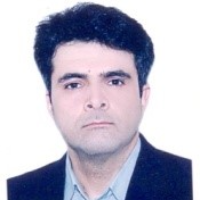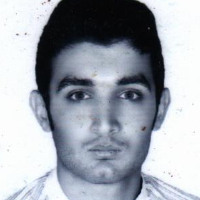The Effect of Eight-Week High Intensity Interval Training (HIIT) and Caffeine Intake On The p38α and hsp70 Protein expression in liver in Diabetic rats induced streptozotocin
Proteins such as p38α and HSP70 are considered as potential factors for type 2 diabetes disorders treatment. The aim of this study was to evaluate eight weeks of High-intensity Interval Training and caffeine consumption on p38α and HSP70 protein expression in the liver of diabetic rats.
50 male Wistar rats with an age range of 2-3 months were randomly divided into 5 groups of 10 rats in each group: Healthy control (C), Diabetic control (D), Diabetic with Training (D+T), Diabetic with Caffeine treatment (D+CA), and Diabetic with Training and Caffeine treatment (D+ T + CA). The training program consisted of 8 sessions and 5 sessions per week (6 to 12 2-minute sessions with an intensity of 85-90% of maximum speed) and 70 mg / kg of Caffeine soluble with saline was injected every day for five days. Western blotting was used to evaluate p38α and HSP70 proteins. Data were analyzed using two-way analysis of variance and if a statistically significant difference was observed, Turkey test was used to determine the location of intergroup differences.
HSP70 protein levels were significantly different in healthy and diabetic mice. High-intensity Interval Training and caffeine consumption significantly increased HSP70 protein compared to the supplement + diabetic group (P=0.001). exercise + supplement group had a greater effect on increasing p38α than other diabetic groups, but this difference was not significant (P=0.96).
High-intensity interval training and caffeine can play an effective role in counteracting damage of diabetes by increasing the expression of HSP70 in the liver. However, high-intensity Interval Training and caffeine consumption have no effect on p38α expression in the liver of diabetic rats.
High-intensity Interval , Caffeine , diabetes , p38α , HSP70
-
The Effect of 8 Weeks of Body Weight Resistance Training and Propolis Supplementation on Serum Testosterone and Growth Hormone Levels in Non-Athletic Women
Roghayeh Mahmoodi, *, Mostafa Soltani
Journal Of Isfahan Medical School, -
The effect of 8 weeks of combined training with the use of Mulberry Leaf Extract on serum levels of Sirtuin 1 and insulin resistance index in elderly men with type diabetes 2
Hamed Taklimi, Roghaye Afroonde *, Mohammad Javad Pourvaghar, , Leyla Katebi
Sport Physiology &Management Investigations, -
THE EFFECT OF 8 WEEKS COMBINED TRAINING ALONG WITH THE USE OF MULBERRY LEAF EXTRACT ON SERUM LEVELS OF FETUIN A AND FETUIN B LEVELS IN ELDERLY MEN WITH TYPE DIABETES 2
, Roghayeh Afroundeh*, MohammadJavad Pourvaghar, , Leila Katebi
Journal of Medical Science Studies,



